January 9, 2017 •
Monday Government Relations News Roundup
Lobbying “Trump’s Twitter Feed Traumatizes Washington” by Eli Stoklos and Josh Dawsey for Politico Florida: “Taxpayers Will Keep Paying for Lobbyists in Tallahassee, Despite House Speaker, Who Calls It a ‘Disgrace’” by Steve Bousquet and Michael Auslen for Tampa Bay […]
 Lobbying
Lobbying
“Trump’s Twitter Feed Traumatizes Washington” by Eli Stoklos and Josh Dawsey for Politico
Florida: “Taxpayers Will Keep Paying for Lobbyists in Tallahassee, Despite House Speaker, Who Calls It a ‘Disgrace’” by Steve Bousquet and Michael Auslen for Tampa Bay Times
New York: “Now a Lobbyist, Democratic Power Broker Faces Restrictions in New York Job” by Samar Khurshid for Gotham Gazette
Campaign Finance
“Libertarian Challenge to Contribution Limits Advances” by Kenneth Doyle for Bloomberg BNA
Florida: “Investigation: Florida elections loophole empowers special interests” by Lucas Daprile for TCPalm.com
Washington: “Seattle Voters Will Soon Get $100 in ‘Democracy Vouchers’ to Donate to Candidates” by Daniel Beekman for Seattle Times
Ethics
California: “City Council Embraces Transparency Provisions Pushed by New Mayor Steinberg” by Anita Chabria for Sacramento Bee
Maryland: “Federal Bribery Charges Filed over Prince George’s County Liquor Licenses” by Lynh Bui, Ann Marimow, and Arelis Hernandez for The Washington Post
Legislative Issues
“House Votes to Fine Members Up to $2,500 If They Take Videos in Chamber” by Erin Kelly for USA Today
South Carolina: “Grand Jury Indicts Rep. Chris Corley on Domestic Violence, Gun Charges” by Maya Prabhu for Charleston Post and Courier
January 6, 2017 •
NYCU Video Digest – January 6, 2017
See what’s happening in government relations this week in our News You Can Use Video Digest. Enjoy!
See what’s happening in government relations this week in our News You Can Use Video Digest. Enjoy!
January 6, 2017 •
News You Can Use Digest – January 6, 2017
National: One Person, One Algorithm, One Vote: Campaigns are doing more with data, for better or worse Capital Times – Katelyn Farrell | Published: 1/3/2017 After an election where political campaigns were blamed or credited for relying on voter data to an unprecedented […]

National:
One Person, One Algorithm, One Vote: Campaigns are doing more with data, for better or worse
Capital Times – Katelyn Farrell | Published: 1/3/2017
After an election where political campaigns were blamed or credited for relying on voter data to an unprecedented degree, Young Mie Kim, a professor and researcher at the University of Wisconsin’s School of Journalism and Mass Communication, is studying how campaigns used that data across the country. Much like how businesses market products, political campaigns are increasingly focusing on sophisticated data-driven calculations, used to persuade voters and get them to the polls. Those predictions inform campaign strategy and often dictate how a candidate interacts with the electorate.
Federal:
House Republicans, Under Fire, Back Down on Gutting Ethics Office
New York Times – Eric Lipton and Matt Flegenheimer | Published: 1/3/2017
House Republicans abruptly withdrew a proposal to weaken an ethics watchdog in a rocky start to the new Congress. The 115th session had not even formally gaveled in before House leaders held an emergency meeting to discuss blowback against the GOP’s vote to eviscerate the independent the Office of Congressional Ethics (OCE). The reversal came hours after President-elect Donald Trump issued a series of tweets questioning the timing of the changes, which would put the OCE under oversight of the House Committee on Ethics. Even before Trump weighed in, a barrage of negative headlines and public outcry made it difficult for Republicans to stand by the measure.
House Votes to Require Disclosure of Presidential Library Donations
The Hill – Megan Wilson and Cristina Marcos | Published: 1/4/2017
The U.S. House passed a bill that would give the public a better view of donations going to presidential libraries. It is the fourth time since 2002 that the House has approved the bipartisan legislation, known as the Presidential Library Donation Reform Act. The bill has died in the Senate each time it has been introduced. The bill would require quarterly disclosure of donations to presidential libraries totaling $200 or more. While lobbyists and organizations that hire them must file semi-annual reports listing all political donations, which include any financial or in-kind gifts to presidential library nonprofits, those foundations are not required to disclose their donors. Lawmakers of both parties said letting the public know who is donating to outgoing presidents’ libraries would shine light on potential “pay-to-play” attempts.
Rep. Duncan Hunter’s Team Responds to Uproar Over Rabbit Expenses
Yahoo News – Michael Walsh | Published: 1/4/2017
U.S. Rep. Duncan Hunter spent $600 of his campaign funds in “cabin rabbit transport fees.” The pet travel was part of $62,000 in personal or not properly documented campaign expenses that Hunter has reimbursed his campaign for. The Office of Congressional Ethics (OCE) conducted a review of Hunter’s campaign spending last year. According to Hunter spokesperson Joe Kasper, there was “no intent” by Hunter to misuse campaign funds on personal matters. Hunter’s team intentionally floated the rabbit story to demonstrate how, from its perspective, the OCE has misconstrued simple mistakes as unethical conduct.
Trump and Julian Assange, an Unlikely Pair, Unite to Sow Hacking Doubts
New York Times – Scott Shane | Published: 1/4/2017
President-elect Donald Trump recently tweeted praise for a man most Republicans wanted nothing to do with – Julian Assange, the founder of WikiLeaks. It was not the first time Trump had praised WikiLeaks. During his campaign for president, he highlighted emails stolen from the Democratic National Committee and Hillary Clinton’s campaign. Since then, Trump has continued praising the radical transparency group, harshly criticized by President Obama and other officials for what they describe as damaging national security leaks. And Trump has been in sync with conservative media, once critical of WikiLeaks, which increasingly embraces Assange as a hero.
Trump to Face Sworn Deposition in Coming Days
Politico – Josh Gerstein | Published: 1/5/2017
With President-elect Donald Trump’s swearing-in fast approaching, many of the high-profile lawsuits that entangled him during the campaign are all but certain to carry on through his inauguration and into his tenure at the White House, and he will even inherit some new ones. Trump and his companies face scores of pending lawsuits, including cases claiming skimming of tips at his New York SoHo hotel, seeking refunds of millions of dollars in membership fees charged by his country club in Jupiter, Florida, and alleging his security personnel assaulted protesters outside Trump Tower. And in a bizarre twist, Trump’s Justice Department will find itself defending against a slew of lawsuits relating to Hillary Clinton’s use of a private email server while she was secretary of state.
From the States and Municipalities:
Alabama – Governor Bentley Has Former Rep. Terry Spicer Removed from State Job
Dothan Eagle; Staff – | Published: 1/4/2017
Alabama Gov. Robert Bentley says a former state representative, who pleaded guilty to bribing a lobbyist, will no longer work at a state liquor store. Bentley said he told his chief of staff to advise the Alcohol Beverage Control Board that former Rep. Terry Spicer will not be employed. Spicer pleaded guilty in 2011 to taking cash and a ski vacation from a lobbyist. Spicer, a former school superintendent and community college employee, needs more time in state employment to draw his pension.
Arkansas – Arkansas State Legislator Neal Pleads Guilty in Kickbacks Scheme
Arkansas Online – Doug Thompson | Published: 1/5/2017
Arkansas Rep. Micah Neal pleaded guilty to directing state funds to two nonprofit organizations in exchange for kickbacks. As part of his plea, Neal admitted that between January 2013 and January 2015, while serving in the House, he conspired with a state senator to use their official positions to appropriate budget surplus funds, known as General Improvement Fund money, to two nonprofit organizations in exchange for bribes. The unnamed state senator involved is described in court documents as serving “in the Arkansas Senate from 2013 to the present. Prior to his service in the Arkansas Senate, Senator ‘A’ serves as a representative in the Arkansas House of Representative from 2007 to 2012.” Four members of the state Senate have political careers that fit that description.
California – Political Donations Flow as Rick Caruso Seeks Approval for a 20-Story Tower Near the Beverly Center
Los Angeles Times – David Zahniser | Published: 12/28/2016
Real estate developer Rick Caruso has been a reliable benefactor at Los Angeles City Hall, giving big donations to the city’s politicians and their pet causes. Now, Caruso wants the mayor and city council to approve a 20-story residential tower on a site where new buildings are currently limited to a height of 45 feet. Opponents of the project view Caruso’s political contributions with alarm, saying the steady stream of money has undermined their confidence in the city’s planning process.
Florida – Ron Book Is Big Winner in Local Government Lobbying Contracts
Miami Herald – Steve Bousquet | Published: 1/3/2017
The Florida House is now posting copies of contracts between lobbyists and local governments online and nearly half of the first set of contracts posted are with Ron Book, who has been a fixture in the halls of the Capitol for four decades and has built local government lobbying work into a cottage industry in the state. Lobbyists hired to represent local governments often get unparalleled access to the powerful because they make campaign contributions, which cities and counties cannot do.
Indiana – State Senator Introduces Ethics Bill to Ban All Gifts from Lobbyists
WTHR – Bob Segall | Published: 1/3/2017
Indiana Sen. Mike introduced a bill that would make it illegal for lawmakers to accept a gift from a lobbyist. Gifts prohibited by the proposed legislation would include anything that has value, such as tickets to athletic events, and anything that may be classified as entertainment. The bill would also require lobbyists to keep a public log of all communication with lawmakers, and lobbyists would have to update those logs frequently. Texts and emails between lobbyists and state lawmakers would for the first time become public records.
Missouri – Missouri Campaign Contribution Limits Remain in Place After Latest Hearing
St. Louis Post-Dispatch – Kurt Erickson | Published: 12/29/2016
In a federal court hearing, opponents of a new Missouri law limiting campaign contributions withdrew a request to block the caps. U.S. District Court Judge Catherine Perry said she wants to first hear arguments about the merits and pitfalls of the new limits before deciding whether to place a temporary hold on the caps while the lawsuit moves through the legal system. Under the change to the state constitution, Missouri voters capped donations to individual candidates at $2,600 per election. Maximum contributions to a political party would be set at $25,000.
Montana – Montana Fails to Retain Decades of Emails Despite Open Government Law
The Missoulian – Jayme Fraser | Published: 1/2/2017
The state archives are supposed to be the final destination for the most important records about Montana government and how leaders made their decisions. Experts say the fact that no emails are saved there is a sign something is wrong. They describe a two-pronged problem: agencies are deleting emails too soon and the archives do not have the storage or equipment to accept them. As a result, Montanans have lost decades of public information. Retention decisions are made by individual state agencies, and few of them have preserved emails consistently, if at all.
New York – Why Developers of Manhattan Luxury Towers Give Millions to Upstate Candidates
ProPublica.org – Cezary Podkul and Derek Kravitz (ProPublica), and Will Parker (The Real Deal) | Published: 12/30/2016
ProPublica and The Real Deal mapped contributions from limited liability companies and individuals tied to the 60 biggest developers of New York City rental properties receiving a lucrative state subsidy. While it has long been known that developers donate a lot of money to state elections, the analysis shows for the first time just how tactical the industry is about bankrolling candidates across the state that are friendly to its cause. The state oversees New York City’s system of capping rent increases, known as rent stabilization. By influencing state elections, developers have undermined rent stabilization and preserved a key tax break that saves them far more money than they spend on political campaigns.
South Carolina – South Carolina’s Pending Ethics Commission Isn’t All That Independent, Experts Say
Charleston Post and Courier – Maya Prabhu | Published: 1/3/2017
South Carolina lawmakers voted last year to create an eight-member Ethics Commission that will be appointed by April 1. While outside groups applauded the move in the wake of scandals in the state, others cautioned there is still room for politics to creep in. Many give South Carolina credit for taking a step, however small, toward having its suspect lawmakers investigated by a separate entity when accused of wrongdoing.
Tennessee – Attorney General Says Political Fundraisers at TN Governor’s Mansion, State Property Legal
Chattanooga Times Free Press – Andy Sher | Published: 1/5/2017
Holding campaign fundraisers at the governor’s mansion and other state property is legal, said an opinion issued by Tennessee Attorney General Herbert Slatery. In an unrelated opinion, Slatery said social media accounts that are created and maintained by a municipality can be a matter of public record.
 State and Federal Communications produces a weekly summary of national news, offering more than 60 articles per week focused on ethics, lobbying, and campaign finance.
State and Federal Communications produces a weekly summary of national news, offering more than 60 articles per week focused on ethics, lobbying, and campaign finance.
January 5, 2017 •
Denver City Council Amends Lobbying Ordinance
Denver City Council approved a bill this week amending the city’s lobbying ordinance. Council Bill No. CB16-0920 narrows the definition of lobbying and changes registration and reporting requirements. Lobbying no longer includes appearances to give public testimony at council hearings […]
 Denver City Council approved a bill this week amending the city’s lobbying ordinance. Council Bill No. CB16-0920 narrows the definition of lobbying and changes registration and reporting requirements.
Denver City Council approved a bill this week amending the city’s lobbying ordinance. Council Bill No. CB16-0920 narrows the definition of lobbying and changes registration and reporting requirements.
Lobbying no longer includes appearances to give public testimony at council hearings or at the request of public officials or employees. Additionally, instead of renewing a registration each year on the registrant’s anniversary date, every lobbyist will be required to renew his or her registration annually by January 15.
Lobbyists are also now required to file bi-monthly reports. Such reports must include an itemized list and the estimated value of all gifts, entertainment, and direct or indirect expenditures to, on behalf of, or benefiting a covered official for lobbying purposes. The changes are effective immediately.
January 5, 2017 •
Thursday Government Relations News Roundup
Lobbying Florida: “Ron Book Is Big Winner in Local Government Lobbying Contracts” by Steve Bousquet for Miami Herald Indiana: “State Senator Introduces Ethics Bill to Ban All Gifts from Lobbyists” by Bob Segall for WTHR Campaign Finance “Rep. Duncan Hunter’s […]
 Lobbying
Lobbying
Florida: “Ron Book Is Big Winner in Local Government Lobbying Contracts” by Steve Bousquet for Miami Herald
Indiana: “State Senator Introduces Ethics Bill to Ban All Gifts from Lobbyists” by Bob Segall for WTHR
Campaign Finance
“Rep. Duncan Hunter’s Team Responds to Uproar Over Rabbit Expenses” by Michael Walsh for Yahoo News
Ethics
“Trump’s Agenda Would Boost His Bottom Line” by Darren Samuelsohn for Politico
Montana: “Montana Fails to Retain Decades of Emails Despite Open Government Law” by Jayme Fraser for The Missoulian
Oregon: “Two of Kate Brown’s Staffers Resign Following Conflict of Interest Questions” by Hillary Borrud for The Oregonian
South Carolina: “South Carolina’s Pending Ethics Commission Isn’t All That Independent, Experts Say” by Maya Prabhu for The Post and Courier
Elections
“It Started with a Retiree. Now the Women’s March Could Be the Biggest Inauguration Demonstration.” by Ben Stein and Sandhya Somashekhar for The Washington Post
Virginia: “The GOP Race for Lieutenant Governor Is Getting Ugly in Virginia” by Laura Vozzella for The Washington Post
Wisconsin: “One Person, One Algorithm, One Vote: Campaigns are doing more with data, for better or worse” by Katelyn Farrell for The Capital Times
Legislative Issues
Pennsylvania: “Pennsylvania House Revises Rules for Expelling Members” by Karen Langley for Pittsburgh Post-Gazette
January 4, 2017 •
Wednesday Government Relations News
Lobbying Maryland: “Interim City Solicitor Pays Rent to Powerful Lobbyist’s Firm” by Doug Donovan for Baltimore Sun Nevada: “Nevada High School Students Learn the Legislative Ropes and Pass Real Laws” by Sandra Chereb for Las Vegas Review-Journal Campaign Finance California: […]
 Lobbying
Lobbying
Maryland: “Interim City Solicitor Pays Rent to Powerful Lobbyist’s Firm” by Doug Donovan for Baltimore Sun
Nevada: “Nevada High School Students Learn the Legislative Ropes and Pass Real Laws” by Sandra Chereb for Las Vegas Review-Journal
Campaign Finance
California: “Political Donations Flow as Rick Caruso Seeks Approval for a 20-Story Tower Near the Beverly Center” by David Zahniser for Los Angeles Times
Ethics
“House GOP Reverses Course on Gutting Ethics Panel” by Rachel Bade for Politico
Indiana: “Critics Want Tighter Restrictions on Post-Legislative Work” by Hayleigh Colombo for Indianapolis Business Journal
Montana: “Political Practices Commissioner to Remain in Office for Now” by Matt Volz (Associated Press) for The Missoulian
Oklahoma: “Oklahoma House Has Sketchy Recent History with Policing Its Own” by Barbara Hoberock for Tulsa World
Texas: “Senator Goes for Low-Hanging Fruit in Ethics Reform” by Jay Root for Texas Tribune
Elections
Minnesota: “In Minneapolis City Council Races, So Far There’s Left, and Further Left” by Adam Betz for Minneapolis Star Tribune
Legislative Issues
Maine: “1-Sentence Draft Bills Criticized for Lack of Transparency” by Marina Villeneuve (Associated Press) for Fairfield Citizen
January 3, 2017 •
Trump Tweets Tumble House Ethics Change Proposal
Following a rebuke in a series of tweets from President-elect Donald J. Trump and negative public reaction, the vote yesterday by the House Republican Conference to weaken the Office of Congressional Ethics has been reversed. This morning Trump tweeted, “With […]
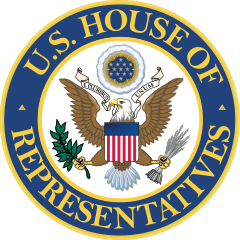 Following a rebuke in a series of tweets from President-elect Donald J. Trump and negative public reaction, the vote yesterday by the House Republican Conference to weaken the Office of Congressional Ethics has been reversed.
Following a rebuke in a series of tweets from President-elect Donald J. Trump and negative public reaction, the vote yesterday by the House Republican Conference to weaken the Office of Congressional Ethics has been reversed.
This morning Trump tweeted, “With all that Congress has to work on, do they really have to make the weakening of the Independent Ethics Watchdog, as unfair as it may be, their number one act and priority. Focus on tax reform, healthcare and so many other things of far greater importance! #DTS.” The hashtag #DTS is recognized to stand for the term “drain the swamp.”
House Majority Leader Kevin McCarthy offered a motion to restore the current OCE rules, which was accepted by the conference, according to Politico. Republicans planned to replace the Office of Congressional Ethics with a standing committee called the Office of Congressional Complaint Review, which would report to the House Ethics Committee. The resolution put forward by Republicans would have limited the power of investigation and the independence of the Office of Congressional Ethics.
January 3, 2017 •
2017 Begins with a New Lobbying Law for Rhode Island
On January 1, the Rhode Island Lobbying Reform Act took effect. The Act repeals the lobbying laws in Title 22 and Title 42 in the state’s statutes and enacts a new consolidated code section covering both the legislative and executive […]
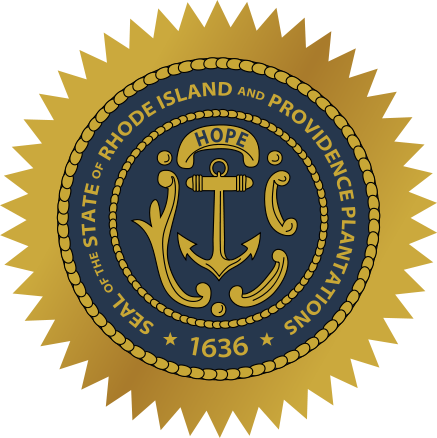 On January 1, the Rhode Island Lobbying Reform Act took effect. The Act repeals the lobbying laws in Title 22 and Title 42 in the state’s statutes and enacts a new consolidated code section covering both the legislative and executive branches of government.
On January 1, the Rhode Island Lobbying Reform Act took effect. The Act repeals the lobbying laws in Title 22 and Title 42 in the state’s statutes and enacts a new consolidated code section covering both the legislative and executive branches of government.
Among the changes in the new law are the simplification of lobbyists’ reporting requirements, an increase in penalties for failing to comply with lobbying requirements, and the allowance for more investigative and administrative authority for enforcing the lobbying laws, including administrative subpoena power.
January 3, 2017 •
Amendments to Federal Gift Rules Effective January 1, 2017
On January 1, new changes to regulations concerning gifts for federal employees took effect. Among the changes the Office of Government Ethics (OGE) made to the federal regulations include a non-binding recommendation employees “consider declining otherwise permissible gifts if they […]
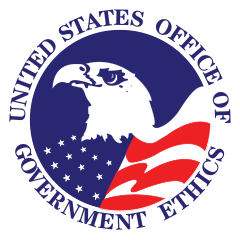 On January 1, new changes to regulations concerning gifts for federal employees took effect.
On January 1, new changes to regulations concerning gifts for federal employees took effect.
Among the changes the Office of Government Ethics (OGE) made to the federal regulations include a non-binding recommendation employees “consider declining otherwise permissible gifts if they believe that a reasonable person with knowledge of the relevant facts would question the employee’s integrity or impartiality as a result of accepting the gift.”
Additionally, federal officials who are required to be granted permission to attend “widely attended events” must now seek the permission in writing.
The $20 threshold for accepting a gift remains the same.
January 3, 2017 •
House to Vote to Change Congressional Ethics Office
Today, the United States House of Representatives may vote to replace the Office of Congressional Ethics with a standing committee called the Office of Congressional Complaint Review, which would report to the House Ethics Committee. On January 2, the House […]
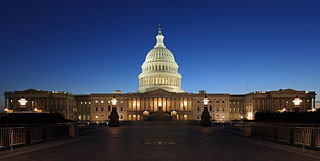 Today, the United States House of Representatives may vote to replace the Office of Congressional Ethics with a standing committee called the Office of Congressional Complaint Review, which would report to the House Ethics Committee. On January 2, the House Republican Conference voted to submit the change, over the objections of Speaker Paul Ryan, according to the New York Times.
Today, the United States House of Representatives may vote to replace the Office of Congressional Ethics with a standing committee called the Office of Congressional Complaint Review, which would report to the House Ethics Committee. On January 2, the House Republican Conference voted to submit the change, over the objections of Speaker Paul Ryan, according to the New York Times.
The resolution put forward by Republicans specifically limits the power of investigation and the independence of the Office of Congressional Ethics. The resolution will be considered today when the representatives vote on their House Rules. The Office of Congressional Ethics was created in 2008 in response to various corruption scandals, including those involving Jack Abramoff, a former lobbyist convicted of conspiracy and wire fraud.
January 3, 2017 •
Tuesday Government Relations News
Campaign Finance Missouri: “Missouri Campaign Contribution Limits Remain in Place After Latest Hearing” by Kurt Erickson for St. Louis Post-Dispatch New York: “Why Developers of Manhattan Luxury Towers Give Millions to Upstate Candidates” by Cezary Podkul and Derek Kravitz (ProPublica), […]
 Campaign Finance
Campaign Finance
Missouri: “Missouri Campaign Contribution Limits Remain in Place After Latest Hearing” by Kurt Erickson for St. Louis Post-Dispatch
New York: “Why Developers of Manhattan Luxury Towers Give Millions to Upstate Candidates” by Cezary Podkul and Derek Kravitz (ProPublica), and Will Parker (The Real Deal) for ProPublica.org
Ethics
“With No Warning, House Republicans Vote to Gut Independent Ethics Office” by Eric Lipton for The New York Times
“Advertising’s Moral Struggle: Is online reach worth the hurt?” by Sapna Maheshwari for The New York Times
“The Enemy Within: Bribes bore a hole in the U.S. border” by Ron Nixon for The New York Times
Alabama: “After Release from Prison, Former Alabama Rep. Terry Spicer Lands Another State Job” by Jim Cook for Dothan Eagle
Connecticut: “Ethics Opinion: Aresimowicz can be House speaker, union staffer” by Mark Pazniokas for Connecticut Mirror
New York: “How Cuomo’s Signature Economic Growth Project Fell Apart in Utica” by Vivian Yee for The New York Times
Elections
“David Fahrenthold Tells the Behind-the-Scenes Story of His Year Covering Trump” by David Fahrenthold for The Washington Post
North Carolina: “Judge Puts NC GOP Elections Board Makeover on Hold after Roy Cooper Sues” by Anne Blythe and Colin Campbell for Raleigh News & Observer
December 30, 2016 •
Judge Puts North Carolina’s Senate Bill 4 on Hold
Today, Governor-elect Roy Cooper filed a legal challenge against Senate Bill 4. Wake County Superior Court Judge Donald Stephens agreed to block the law from taking effect while the lawsuit is pending. Senate Bill 4 would have taken effect January […]
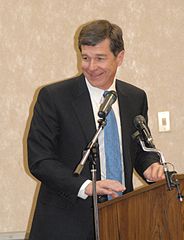 Today, Governor-elect Roy Cooper filed a legal challenge against Senate Bill 4. Wake County Superior Court Judge Donald Stephens agreed to block the law from taking effect while the lawsuit is pending.
Today, Governor-elect Roy Cooper filed a legal challenge against Senate Bill 4. Wake County Superior Court Judge Donald Stephens agreed to block the law from taking effect while the lawsuit is pending.
Senate Bill 4 would have taken effect January 1, 2017, to merge the State Board of Elections with the State Ethics Commission and create a new eight-member board split evenly between Republicans and Democrats. The bill was passed by a Republican dominated legislature in an attempt to limit the power of the executive branch before newly elected Democrats take power.
December 30, 2016 •
Texas Ethics Commission Adopts New Lobbyist Registration Exception
This month, the Texas Ethics Commission adopted a new rule adjusting the compensation and reimbursement threshold for lobbyists. The new rule eliminates an exception not requiring a person to register as a lobbyist if he or she lobbied no more […]
 This month, the Texas Ethics Commission adopted a new rule adjusting the compensation and reimbursement threshold for lobbyists.
This month, the Texas Ethics Commission adopted a new rule adjusting the compensation and reimbursement threshold for lobbyists.
The new rule eliminates an exception not requiring a person to register as a lobbyist if he or she lobbied no more than five percent of his or her compensated time during a calendar quarter. Under the new rule exception, a person is not required to register as a lobbyist if the person spends not more than 40 hours during a calendar quarter engaging in lobbying activity for which the person is compensated or reimbursed.Time spent on preparatory activity is included in determining whether the 40-hour threshold has been met.
This rule goes into effect January 1, 2017.
December 30, 2016 •
News You Can Use Digest – December 30, 2016
National: When One Party Has the Governor’s Mansion and the Other Has the Statehouse New York Times – Trip Gabriel | Published: 12/26/2016 Governors outgunned by veto-proof majorities in their Legislatures have successfully used the bully pulpit of their office, going over the […]

National:
When One Party Has the Governor’s Mansion and the Other Has the Statehouse
New York Times – Trip Gabriel | Published: 12/26/2016
Governors outgunned by veto-proof majorities in their Legislatures have successfully used the bully pulpit of their office, going over the heads of part-time lawmakers to directly appeal to citizens. Other times, governors have profited from a basic law of politics: they are usually more popular than legislative bodies, whose job favorability is little higher than that of perpetrators of Ponzi schemes. And governors in control of the bureaucracy of the executive branch have found that, like President Obama in the face of congressional obstruction, they can pull the levers of executive action to advance an agenda.
Wielding Claims of ‘Fake News,’ Conservatives Take Aim at Mainstream Media
New York Times – Jeremy Peters | Published: 12/25/2016
Until now, the term “fake news” had been understood to refer to fabricated news accounts that are meant to spread virally online. But conservative cable and radio personalities, top Republicans, and President-elect Donald Trump, incredulous about suggestions that fake stories may have helped swing the election, have appropriated the term and turned it against any news they see as hostile to their agenda. In defining “fake news” so broadly and seeking to dilute its meaning, they are capitalizing on the declining credibility of all purveyors of information. And conservatives, seeing an opening to undermine the mainstream media, a longtime foe, are more than happy to dig the hole deeper.
Federal:
Donald Trump Plans to Shut Down His Charitable Foundation, Which Has Been Under Scrutiny for Months
Washington Post – Mark Berman and David Fahrenthold | Published: 12/24/2016
President-elect Donald Trump announced he intends to dissolve his charitable foundation, his latest move aimed at settling ethical conflicts that have already dogged the incoming administration. The Donald J. Trump Foundation has come under scrutiny this year after a series of news reports detailing its practices, including cases in which Trump apparently used the charity’s money to settle lawsuits involving his for-profit businesses. New York’s attorney general has been investigating the charity after some of these reports, and a spokesperson for that office said the foundation could not officially shut down until that probe is over.
Inside the Trump Organization, the Company That Has Run Trump’s Big World
New York Times – Megan Twohey, Russ Buettner, and Steve Eder | Published: 12/25/2016
With entanglements around the world, many packaged in a network of licensing agreements and limited liability companies, the Trump Organization poses a raft of potential conflicts for a president-elect who has long exerted tight control over his business. Donald Trump, owner of all but the smallest sliver of the privately held company, has said while the law does not require it, he is formulating plans to remove himself from the company’s operations. But amid rising pressure, Trump and his advisers have been debating further steps. Yet an examination of the company underscores the challenges of taking Donald Trump out of the picture. His company is a distinctly family business fortified with longtime loyalists that operates less on standardized procedures and more on a culture of its leader.
Navy Repeatedly Dismissed Evidence That ‘Fat Leonard’ Was Cheating the 7th Fleet
Washington Post – Craig Whitlock | Published: 12/27/2016
The Navy allowed the worst corruption scandal in its history to fester for several years by dismissing evidence that a Singapore-based contractor, Leonard Francis, was cheating the service out of millions of dollars and bribing officers with alcohol, prostitutes, and lavish dinners. Staffers at U.S. Pacific Fleet headquarters were so worried about the potential for trouble that they drafted a new ethics policy to discourage Navy personnel from accepting favors from Francis. But their effort was blocked for more than two years by admirals who were friendly with the contractor. It took officials years to gather enough evidence to charge Francis and arrest him. He has pleaded guilty to defrauding the Navy of $35 million.
U.S. Punishes Russia for Election Hacking, Ejecting Operatives
New York Times – David Sanger | Published: 12/29/2016
The Obama administration announced new measures in retaliation for what officials have characterized as Russian interference in American elections, ordering the removal of 35 Russian government officials from the U.S. and sanctioning agencies and individuals tied to the hacks. The announcement culminates a debate over whether and how to respond to Russia’s unprecedented election-year provocations, ranging from the hacks of the Democratic National Committee to the targeting of state electoral systems. President-elect Donald Trump suggested the U.S. should drop its effort to retaliate against Russia, and cast doubt on intelligence agencies’ conclusion that Russia was behind the hacks.
From the States and Municipalities:
California
How to Influence the California Legislature? New Spending Details Revealed
Sacramento Bee – Taryn Luna and Jim Miller | Published: 12/28/2016
The third quarter of 2016, which included the end of the legislative session, was so important that companies, unions, trade associations, and other groups paid $84.4 million to lobby California officials on bills and regulations during the three-month period. Much as campaigns for candidates seek to win over voters, the disclosure filings underline the extent to which special-interest groups employ some of the same resources to make their cases to lawmakers and state officials. They also for the first time provide details about which political consultants, public-relations experts, advertising firms, and other non-lobbyist advocates are being paid to influence policy.
California
Santa Clara County Bosses Let Workers Take Toys Meant for Needy Kids
San Jose Mercury News – Ramona Girwagis | Published: 12/23/2016
Expensive toys intended as Christmas presents for poor children were handed out instead to dozens of Santa Clara County employees, and the county executive’s office says they do not need to return them. County employees walking to their cars from work saw the items being unloaded from trucks at the Santa Clara County building as part of a toy drive. County Executive Jeff Smith insisted that county employees who took the toys understood they needed to donate them to a nonprofit or church. But he could provide no documentation that workers were told to donate them. Smith acknowledged the county has no way of knowing whether the employees donated the gifts or kept them for themselves. “Had we realized that this was going on we probably would have organized it differently,” said Steve Preminger, a special assistant to Smith.
Florida
Shining a Light on Lobbyists, New Efforts to Curb Their Influence
Tallahassee Democrat – James Call | Published: 12/18/2016
It is a new era in Washington, D.C. and Tallahassee, and the winners of the November election are imposing new realities on how lobbyists can operate. New lobbyist-disclosure requirements approved by the Florida House aim to reveal how paid advocates and lawmakers interact behind the scenes. The rules place the lobbying corps in a delicate situation. They clearly target their product – influence – yet opposition would alienate House Speaker Richard Corcoran, the official with the ability to see that their bill, amendment, or request never gets heard. Lobbyists said they are figuring out how to navigate the new working conditions.
Missouri
With Greitens’ Blessing, Lawmakers Aim for Lobbyist-Gift Ban
Springfield News-Leader – Summer Ballentine (Associated Press) | Published: 12/25/2016
Maybe this year, with support from Gov.-elect Eric Greitens, Missouri lawmakers will be able to keep lobbyists from giving officeholders expensive dinners or concert tickets. If lawmakers fail to deliver in the 2017 session, it would break a campaign promise from Greitens, who largely focused on how he would tackle corruption in the Capitol, which in recent years has been marred by ethics scandals, and said such a ban is his first goal. It is also among the top priorities for House Speaker Todd Richardson, who said he was personally disappointed when an ethics bills did not pass last session.
New York
De Blasio Signs Measures Limiting Political Contributions
Newsday – Matthew Chayes | Published: 12/22/2016
New York City Mayor Bill de Blasio signed campaign finance reform legislation recently. Included in the bills are limits on contributions by donors with business before the city to elected officials’ political nonprofits, ostensibly aimed at a group like the mayor’s now-defunct Campaign for One New York. Other legislation eliminates public matching funds for contributions bundled by people doing business with the city, limits amounts donated for transition and inauguration activities, and changes eligibility requirements for certain activities like debates.
New York
JCOPE Settles with Firms Caught Up in Skelos, Silver Cases
Albany Times Union – Casey Seiler | Published: 12/28/2016
The New York Joint Commission on Public Ethics reached settlements over lobbying violations with companies involved in the corruption cases of former Senate Majority Leader Dean Skelos and ex-Assembly Speaker Sheldon Silver. Glenwood Management will pay a $200,000 fine and Administrators for the Professions will pay $70,000. Glenwood failed to disclose meetings and other lobbying activities before Skelos, and recommended to a company that it hire his son as a consultant. Glenwood also retained a law firm knowing a portion of the fees it paid would be shared with Silver. Administrators for the Professions admitted in the course of lobbying Skelos, it employed his son in an arrangement designed to curry favor with the senator.
New York
NYCLU, ACLU Sue New York Over Ethics Law
Albany Times Union – Chris Bragg | Published: 12/22/2016
A civil liberties group has joined in the call for a federal judge to strike down new donor-disclosure provisions in New York that allegedly stray from their anticorruption goals, hurting the protected speech rights of both nonprofits and donors. The new law mandates the public disclosure of all donors and contributions to a 501(c)(3) in excess of $2,500 whenever that organization makes an “in-kind donation” of over $2,500 to certain 501(c)(4)s engaged in lobbying activity. For 501(c)4 disclosure, the law lowers the threshold from $50,000 to $15,000 in annual lobbying spending. Unless the lawsuits succeed in getting an injunction, the first lobbying reports with the new disclosure requirements are due at the end of January.
Oklahoma
An Oklahoma Newspaper Endorsed Clinton. It Hasn’t Been Forgiven.
New York Times – Manny Fernandez | Published: 12/26/2016
The Enid News & Eagle, a red newspaper in a red county in what is arguably the reddest of states went blue this campaign season and endorsed Hillary Clinton for president. The editorial board wrote that Donald Trump lacked “the skills, experience or temperament to hold office.” It was the first Democratic endorsement for president in the modern history of the newspaper, which was founded in 1893. Enid was stunned, and this slow-paced agricultural town of 52,000 near the Kansas state line has not been the same since. Around the country, as newspapers big and small are struggling to keep subscribers, a handful of papers with conservative editorial boards made news by either endorsing Clinton or urging readers to back anybody but Trump.
South Carolina
Possibility of More S.C. Lawmakers Charged with Corruption Looms
Aiken Standard – Seanna Adcox (Associated Press) | Published: 12/24/2016
Following the 30-count indictment of a former state House majority leader, questions over who else may face corruption charges will loom over South Carolina’s 2017 legislative session. The misconduct and ethics charges against Rep. Jim Merrill, the first since former Speaker Bobby Harrell pleaded guilty and resigned more than two years ago, ended all speculation that lawmakers could breathe easy. And prosecutor David Pascoe made clear he is not done. “This is still an ongoing investigation,” Pascoe said in a recent statement.
 State and Federal Communications produces a weekly summary of national news, offering more than 60 articles per week focused on ethics, lobbying, and campaign finance.
State and Federal Communications produces a weekly summary of national news, offering more than 60 articles per week focused on ethics, lobbying, and campaign finance.
State and Federal Communications, Inc. provides research and consulting services for government relations professionals on lobbying laws, procurement lobbying laws, political contribution laws in the United States and Canada. Learn more by visiting stateandfed.com.

